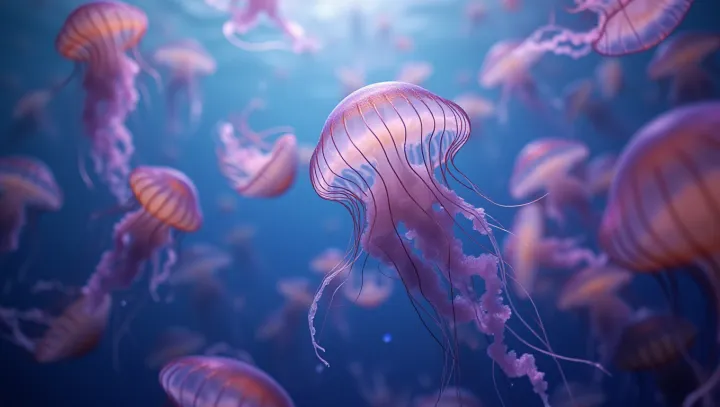Jellyfish: Marvels of the Ocean

In the vast and enigmatic expanses of the Pacific Ocean, jellyfish navigate the waters with an astounding adaptation: the complete absence of brains, blood, or hearts. These delicate marine organisms defy conventional biological principles, yet flourish across oceans worldwide. Recent studies off the coast of Hawaii have revealed remarkable insights into jellyfish physiology.
Researchers at the Marine Science Institute have highlighted their evolutionary success, which poses intriguing questions about the essential requirements for life. Although devoid of many traditional organs, jellyfish exhibit sophisticated feeding and movement mechanisms. Globally, marine biologists are captivated by how jellyfish manage to thrive in such diverse environmental conditions.
As Professor Allen Hughes of Oceanic Research Center articulates, 'Jellyfish challenge our understanding of biology. Their success over millions of years speaks to their extraordinary adaptability.' This enigmatic existence provokes discussions about evolutionary adaptations and the definition of intelligence and sentience in life forms. As climate change impacts marine biodiversity, jellyfish populations offer both fascination and concern due to their resilience and increasing numbers in warming oceans.
The revelations about jellyfish are not merely academic; they underscore a broader narrative about the ocean's health and the interconnectedness of marine ecosystems. The study of these gelatinous dynamos is pivotal in understanding both ancient evolution and future marine conservation efforts.
